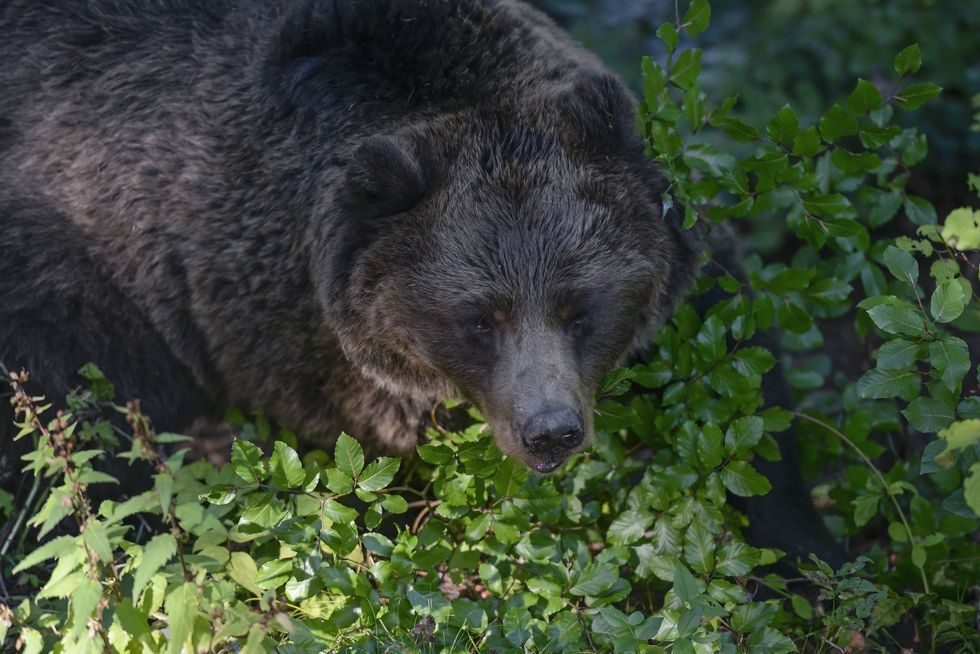Britons planning on taking part in outdoor tourist activities such as hiking in Italy have been given an important safety warning regarding bear sightings in the Trentino region.
Holidaymakers should always consult the UK Government’s travel advice before going abroad.
The Dolomites are a mountain range which includes the Italian provinces Trentino, South Tyrol, Friuli-Venezia Giulia and Belluno
GETTY IMAGES
A page dedicated to Trentino reads: “Bears usually avoid contact with humans because they perceive them as a danger. However, if you are visiting an area where they are native, it is important to know what to do in case of an encounter.”
Good to know
- Bears do not consider humans as potential prey, but fear them and keep distance.
- Bears only attack when surprised or provoked.
- Female bears with cubs have a strong protective instinct.
- To avoid an encounter with a bear, it is important to make yourself noticed (clapping, singing, whistling, etc) and stay on the path.
- Keep your dog on a leash. Otherwise, there is a risk that he will approach, disturb or attack a bear and, if he comes back to you, will bring him to you.
- If you see a bear, do not disturb or approach.
- Never feed a bear, even if it seems calm.
- Stay away from a bear that is eating.
- Do not approach or enter a bear den.
- Do not leave food debris behind in the forest.
Rules of conduct
- The most important thing in an encounter with a bear is to remain calm.
- If you see a bear in the distance, go back the way you came so that the bear has room to continue on its way. Important: do not run away!
- It is possible that the bear will stand on its hind legs or approach without seeing you, as bears do not have very good eyesight and may not notice the presence of humans. In this case, signal your presence by speaking softly so that the bear can sense you without perceiving you as a danger. The bear will probably retreat immediately.
- If you get close to a bear (even if it is a mother with cubs), stop, stay calm and back away slowly, without sudden movements and without screaming.
- Do not throw stones or other objects towards the bear.
- If the bear attacks you, do not react. Stay calm or lie down slowly with your face down. The bear will probably stay close to you without physical contact.
- It is difficult to know if it is a fake attack or not. Playing dead before the contact gives the bear the feeling that you are not a danger. Lie on the ground, interlock your fingers at the back of your neck and shield your head with your arms. Try to remain still until the bear stops the attack and moves away. Do not run, shout or try to hit the animal. If you are wearing a backpack, it can be useful to protect yourself.
- Bears are excellent climbers and can run up to 50 km/h. So don’t try to escape a bear by climbing a tree or running away unless you can get to a safe place (e.g. your car) within a short distance.
Hikers were told that in the Autonomous Province of Trento, there is a 24-hour telephone number through which the presence of bears can be reported to gain information or report emergencies related to large carnivores. The number is also linked to the general emergency number 112.
The emergency number for large carnivores is +39 335 7705966.
LATEST DEVELOPMENTS

‘Bears only attack when surprised or provoked’
GETTY IMAGES
The FCDO provides essential information for Britons partaking in outdoor activities and adventure tourism.
Britons were warned: “Hiking, mountaineering and other adventure sports have specific risks. Check the company is well-established in the industry and make sure your insurance covers these activities.
“For sports activities like skiing, potholing and mountaineering, and for sports classed as particularly dangerous, such as off-piste skiing, mountain biking, climbing, paragliding or BASE jumping, your insurance should include mountain rescue services, helicopter costs, and repatriation to your country of residence or transfer to neighbouring countries for treatment.
“Check weather forecasts and conditions and make sure you’re properly equipped for the worst-case scenario with items such as a map, compass, GPS and telecommunication equipment.
“Risks are greater if you undertake any activity alone. You may want to hire a guide for expert advice. Always leave copies of your itinerary with someone.”
Britons visiting Italy should consult the FCDO’s guidance on warnings and insurance, entry requirements, safety and security, health and getting help in an emergency.

